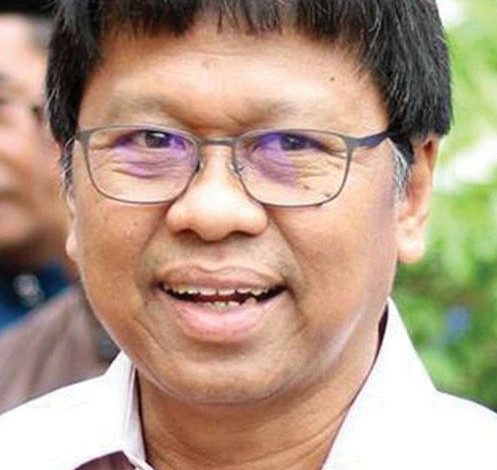Editorial: Poverty Evaluation Unrealistic


By Fathol Zaman Bukhari
The previous Barisan Nasional government was notoriously fond of doctoring and massaging figures in order to look good.
The National Patriots Association (Patriot) had disputed Economic Affairs Minister Azmin Ali’s denial of a United Nations expert’s claim that Malaysia had understated the extent of its poverty.
Instead of treating the report as baseless, said Patriot, Azmin should have directed his officers to re-evaluate the findings and the basis of the poverty-line computation.
United Nations Special Rapporteur on Extreme Poverty and Human Rights Philip Alston, on Friday, August 16, had dismissed Malaysia’s assertion that the nation’s poverty line, at 0.4 per cent, is almost eradicated. The figure, claimed Philip was not a true reflection of realities on the ground.
In the course of his 11-day study in Malaysia, Alston noted that there was a dire need for the country to readjust its national poverty line of RM980 per month (or RM8 per day) for a family of four. The figure was simply too far-fetched. It does not take a rocket scientist to ascertain the truth. One need only to look around to appreciate the truth.
Philip proposed that the government devise a poverty-eradication plan that takes into account the needs of marginalised communities such as migrant workers, refugees, stateless people, the Orang Asli and the physically handicapped.


“Common sense will tell that a family of four will find it impossible to survive with a meagre income of RM980 a month in the Klang Valley,” said Arshad. With that amount it is difficult to survive even in Ipoh let alone Kuala Lumpur.
The Malaysian Trades Union Congress (MTUC) said that the government must study the effect of low wages since they were irrevocably related to poverty rates.
Secretary-General, J. Solomon, said the current minimum wage of RM1100 a month should be raised as it was not consistent with prevailing market conditions.
Alston’s findings, according to Solomon, were in line with MTUC’s stand that the government is grossly disconnected. It did not consider negating factors on the ground to assess actual poverty.
“It’s way off the mark. If the difference is 1 or 2 per cent from the 0.4 per cent government poverty line, then the government’s stand is acceptable. But the UN findings are between 15 and 20 per cent. That means at least about five million workers are earning below the poverty line,” he posited.
Solomon noted that the handbook showing the government’s figure of 0.4 per cent poverty rate was issued in 2011 and, therefore, was grossly inaccurate.
The last seven years have seen a steep rise in the cost of living while real wages have remained stagnated. That is the reality, ask any wage-earner. But, on hindsight, employers themselves are reluctant to pay more to their employees, as business has not been good thus far.
An informal survey
A random survey of residents living in the outskirts of Ipoh revealed some interesting facts. This is a sampling of three individuals representing the major races in the country.
Tajul Ariffin, 49, from Kampong Cik Zainal, Chemor is a father of five. He works as a school bus driver and is paid RM1200 a month by the bus owner. Whenever he skips work due to health issues he is not paid. So he has to be on his feet every day. He spends almost all the money he receives on food and essentials each month. Tajul is forced to work as a security guard at a factory in Klebang to earn extra for a rainy day.
Wong, 53, is a single parent having lost his wife to cancer recently. He lives in his own house in Kampung Tawas, Ipoh. Wong has no steady job but has found employment as a gardener at a Chinese School near his place. He is paid RM1000 a month and spends almost all to maintain his house and his two kids – a boy and a girl. The amount is insufficient, so he takes a second job as a cleaner at a food court. He is paid RM20 every night when he is on duty.
Ramasamy, 63, an ex-TNB meter reader, lives in Buntong. He is a divorced parent of three grown-up kids. Though his children are gainfully employed, he thrives on being independent and trouble-free. He works as a security guard at a hotel in Taman Botani and gets RM1500 for his effort. The amount is sufficient to see him through each month. However, how many retirees are as fortunate as he is?
Former Petaling Jaya MP Maria Chin Abdullah said there was poverty even in prosperous Petaling Jaya.
Maria said the national poverty line must take into account the ability of the people to live healthily, take part in the society meaningfully, and possess opportunities for personal and family development.
“Unfortunately, during my tenure as MP for Petaling Jaya, I’ve learned that this is not so for many of my constituents, even as they live side-by-side with their more affluent neighbours,” she said.
Doubts over the purchase of cars
MB Ahmad Faizal Azumu said claim by state opposition leader Saarani Mohamad that the Perak government had lied regarding the purchase of staff cars was untrue.


Saarani had asked the state government to come clean on the purchase of 16 Toyota Camrys for use by state executive councillors.
Executive Councillor Asmuni Awi said that the market price of the Toyota Camry was RM190,000 per unit. The state government paid RM109,000 for it, resulting in a savings of RM81,000 through a tax rebate. This, however, was refuted by the Finance Ministry. The ministry, in a statement, said it had neither received an application nor had it given tax exemption to the Perak Government for the Toyota Camrys.
Faizal insisted that the purchase of the cars was a cost-saving measure, as the local Toyota dealer would provide free maintenance for five years. That was the saving grace, he claimed.
Rt Hon MB, all car dealers provide a similar incentive to their customers. It all depends on the car model, its price and the number bought. Sixteen Toyota Camrys is a huge figure. The free maintenance looks good on paper only. Customers still have to pay for parts changed during periodic servicing. There is no free lunch, MB.
By the way, what has happened to the old cars, Proton Perdana (Honda Accord) which are barely five years old? Are they being moth-balled or disposed-off to a willing crony or cronies? The silence is deafening.


